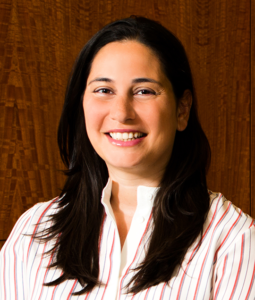
Samar Ali
Research Professor of Political Science and Law |
Co-Chair, Vanderbilt Project on Unity & American Democracy
The Alumni Spotlight features Samar Ali, who has recently joined the faculty of Vanderbilt University as a research professor of political science and law. While in this role, Samar will also co-chair the Vanderbilt Project on Unity and American Democracy with former Tennessee Governor Bill Haslam and Pulitzer Prize-winning presidential biographer and Vanderbilt faculty member Jon Meacham.
Samar’s interview offers insights into how her previous experience prepared her for this new role and how she has always made sure her passions have complemented her law practice.
Continue reading below for Samar’s full interview. To read more about her appointment, click here.
What is the best and/or most rewarding part of your role?
By working at the grassroots level through Millions of Conversations and at the policy level through Vanderbilt Project on Unity & American Democracy, I find it incredibly rewarding to work toward the realization of sustainable peace in our country today. It is through this model that we will hopefully transcend divides and bring Americans together around common values through the public square.
It is the most rewarding experience to work toward a mission that benefits our society and to bring all my training and experience as a mediator together into one career. Cutting across disciplines from human rights, civil rights, national security, and economic development, it feels as though this role is the most natural platform for me to step onto currently- having worked across disciplines as both a corporate attorney and a mediator in both the public and private sector.
What advice do you have for attorneys interested in having a career like yours?
Don’t box yourself in. Embrace your inner polymath! I became a corporate attorney when I graduated law school even though I was initially attracted to law to protect human rights. To some, that might have seemed like my career took a permanent turn for the rest of my life. It was not and rather set into motion the foundation for me to become an effective mediator with diverse negation skills. Training as an attorney teaches you to think critically, pay attention to detail, and understand how systems work. Those are unique lessons that I have been able to apply to my career far beyond the day-to-day life of a corporate lawyer. As a capitalistic society within a democratic framework, understanding how the private sector works is also a critical skill to hone. Our laws are a manifestation of our human condition and the ways in which we interact with one another. Learning to work within and identify the flaws of these systems has allowed me to think critically about concepts like belonging and peace. I have used my career and my training to inform all of my work – often in unexpected ways. My advice is to embrace the opportunities that push you beyond your comfort zone and apply your legal training in creative ways that serve your mission.
What’s your favorite vacation spot?
My favorite vacation spot is South Africa.
What is the last fiction book you read?
The last fiction book I read is the series, My Beautiful Friend. All four books in the series are fantastic and I highly recommend them!
What historical figure do you identify with the most?
Nelson Mandela. Having had the benefit to visit his prison cell on Robbin Island, live on the same street as his house in Soweto in 2004, read his books, and spend quality time with people that worked alongside him during his Long Walk to Freedom, he is someone whose life story has most inspired me. Like most of us reading this Alumni Newsletter, he too started off his career as a lawyer. His first professional love was the practice of law and he began practicing law in downtown Johannesburg during the mid-20th century. His passion for justice combined with his powerful strengths led him down a path of resistance, struggle, pain, and sacrifice. Yet, after spending almost three decades in prison where he honed his ability to forgive while continuing to believe in unity, he ultimately changed a broken system in ways that were relatively peaceful. By inspiring people to see a future that included everyone equally, he used his legal skills, his personal and professional strengths, and his discipline to change our world for the better.


